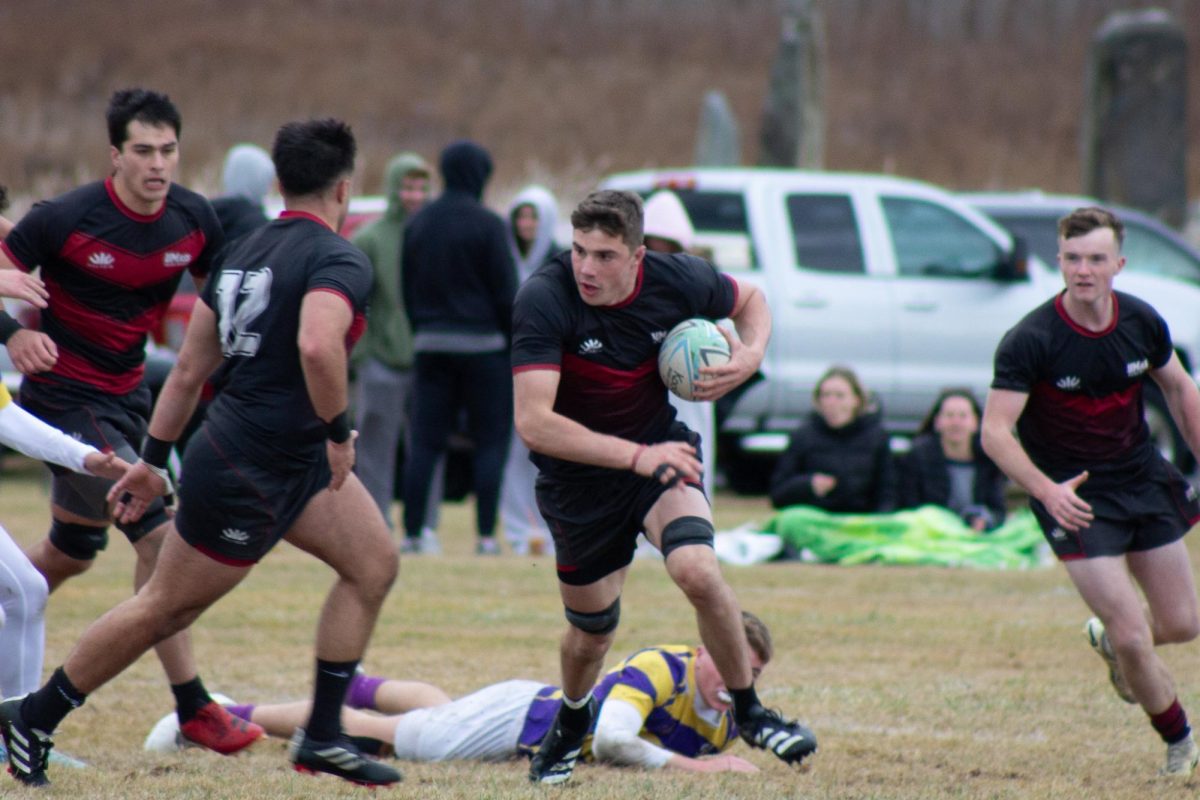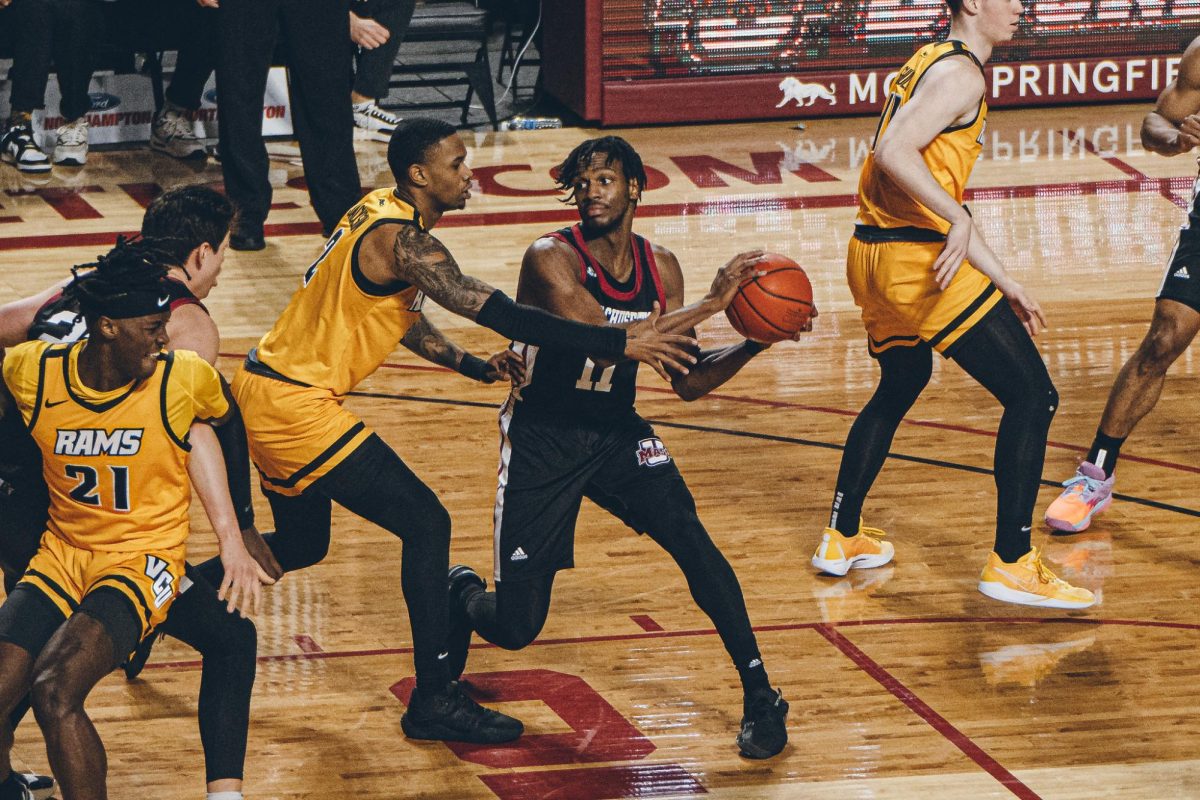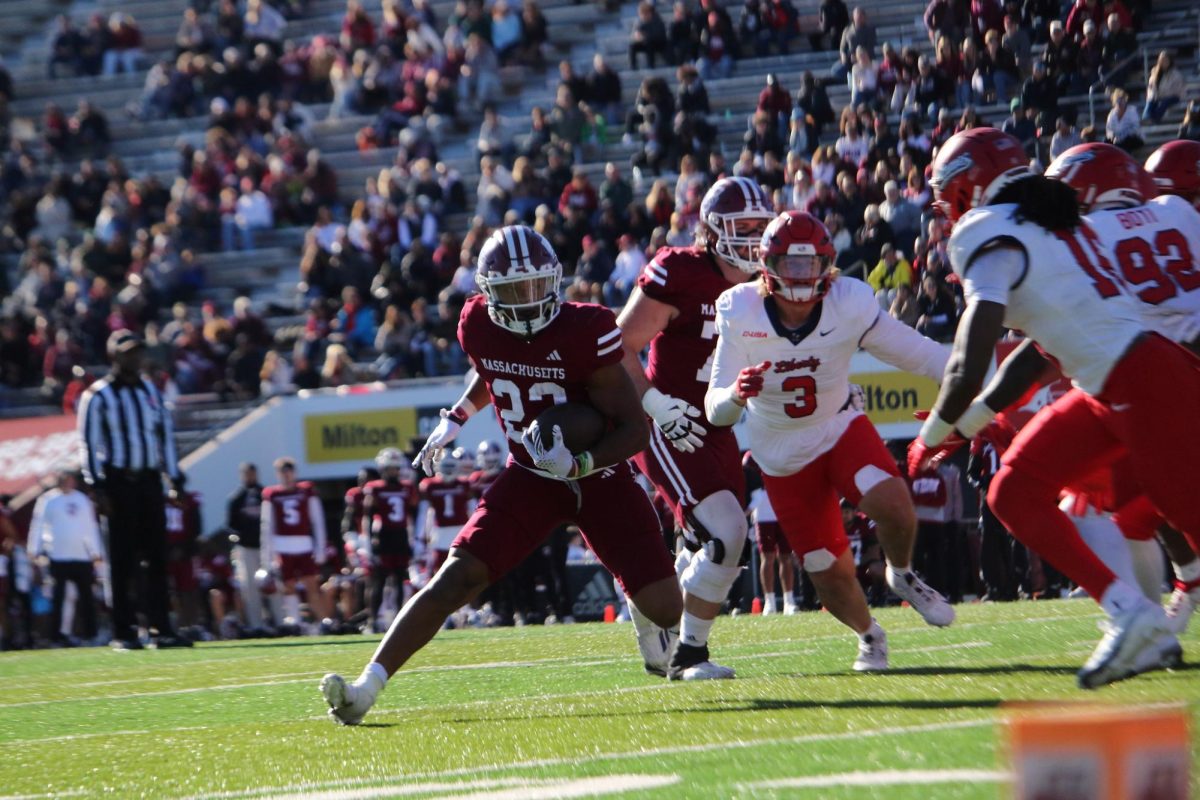
Jennifer Carlson spoke on gun policy in the United States in Thompson Hall on Tuesday afternoon. The talk was titled, “Policing the Second Amendment: Race, Gun Law Enforcement, and the Overpolicing/Underpolicing Paradox.”
Carlson, part of the School of Sociology and School of Government and Public Policy at the University of Arizona, focused her presentation on the research and ethnographic work that she has completed in Detroit, Michigan.
Thirteen million Americans are licensed to carry a concealed weapon. Four hundred thousand residents of Michigan are licensed, or 1 in 25 citizens. Once licensed, Carlson said “it is possible to carry a concealed weapon in a coffee shop, a grocery store, or even a school.”
According to a Gallup Poll from Oct. 2015, 41 percent of citizens believe that the state of the U.S. would be less safe if more Americans carried concealed weapons, whereas 56 percent of citizens believed the state of the U.S. would be safer if more Americans carried concealed weapons.
The police chief of Detroit has advocated on multiple occasions that law-abiding residents of Detroit should get a concealed pistol license, a CPL, instead of calling 911.
Part of Carlson’s work included observing some of Detroit’s public gun board meetings, where citizens apply for gun licenses. Once licensed, there are little regulations for these citizens, yet acquiring a license can be a difficult and intricate process. Many citizens, especially African-American citizens, have been denied CPLs for having parking tickets, outstanding warrants, unpaid child support, or even if there is suspicion of marijuana use.
Carlson said that many of the police officers she interviewed told her they were “nostalgic for the days when they could enact street justice, in the ‘70s and ‘80s” compared to now, when “one little mistake” has large consequences.
Carlson covered the controversial topic of “justifiable homicide” by police officers, and how the majority of victims are African-American. Carlson said gun violence and murder rates appear to have decreased in the numbers as more and more citizens are carrying concealed weapons, yet she mentioned this could be a result of more and more violent acts being characterized as “justifiable homicide” and excluded from data research.
The question and answer forum was very responsive, with many audience members thanking Carlson for her informative talk.
Margo Ballenas, a junior public health major, found the lecture interesting, yet some of the content concerning.
“The data was new information, as far as the involvement with the NRA, and how secretive they are with their information…guns and gun violence. It’s worrisome that we don’t have access to these kind of records that we need to, to keep up with the actual incidents of gun violence,” Ballenas said.
Editor’s note: It is not legal to carry a firearm concealed in a school in Michigan and there are various regulations in order for civilians to carry a firearm. Also, the chief of police of Detroit does not advocate that citizens shouldn’t call 911. Carlson’s research did not discuss police justifiable homicides and racial disparities and furthermore the NRA does not have anything to do with records regarding gun violence.
Emma Martin can be reached at [email protected].



















David Hunt 1990 • Dec 7, 2016 at 3:02 pm
Anyone actually interested in FACTS should look at John Lott’s “More Guns, Less Crime”.
http://amzn.to/2hhzK5m
Jennifer Carlson • Dec 7, 2016 at 1:22 am
Hi,
I appreciate that you covered my visit to UMass Amherst. However, this story (dated Dec 7, 2016) mistakes a number of facts presented during the talk, which deserve correction:
– First, it is not legal to carry a firearm concealed in a school in Michigan. However, I said during the talk that it is legal to carry a firearm in your car if you are dropping a child off at school. It is also legal – if you are permitted to conceal carry – to open carry in a school.
– Next, there are regulations for civilians who are licensed to carry firearms – it is not true that there is little regulation. In addition to denying licenses, the purpose of gun board was to suspend or revoke licenses from claimants who had violated statutory requirements. This was discussed during the talk.
– The Chief of Police of Detroit does not advocate that citizens shouldn’t call 911 – but he says he understands why they may be reluctant to wait for police and thus sees concealed carry as understandable.
– In addition, my research did not discuss police justifiable homicides and racial disparities therein; I discussed justifiable homicides committed by civilians. I pointed out that the victims and perpetrators are overwhelmingly African American.
– Finally, the NRA does not have anything to do with records regarding gun violence; I appreciate the comment but would like to clarify that this is not correct and was never discussed during my talk. I discussed the sealing of records regarding legal gun owners and gun carriers.
Thanks for addressing these factual errors,
Jennifer